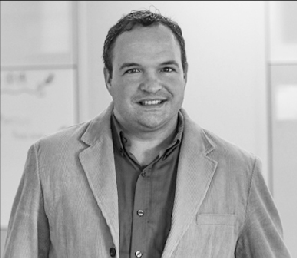
The Suffolk University Psychology department has recently received a $3 million grant that will allow it to partner with the Trauma Center at Justice Resource Institute (JRI) over the next five years. This grant will allow Suffolk to obtain necessary resources and opportunities in order to improve services and treatments to benefit at-risk youth impacted by trauma.
“One of the goals of this grant will be to increase trauma-informed care for people who provide services to at-risk youth and where there are no services available,” according to Suffolk Psychology Professor and main investigator for the Complex Trauma Treatment Network program Michael Suvak.
Suvak said he had an initial reaction of shock when receiving the grant immediately, because obtaining funding usually takes multiple submissions and resubmissions
The grant will support a doctoral student in the role of a research assistant. McKenna Parnes is a part of the first-year doctoral program in the psychology department who is working as the research assistant on the Substance Abuse and Mental Health Services Administration’s funded project.
“It is so important to help vulnerable youth get access to resources and services, especially those who have been impacted by significant trauma exposure” McKenna said in an interview with The Suffolk Journal. “The work being done on this grant is very aligned with my research and clinical interests, and offers me an incredible opportunity to get involved with the Trauma Center.”
McKenna will not be the single Suffolk student obtaining opportunities through this grant.
Suvak said that undergraduates in the future would benefit from knowledge and information trickled down from graduate students through collaboration during internships at the Trauma Center.
Suvak also partnered with Joseph Spinazzola, executive director of the Trauma Center and co-director of the Complex Trauma Treatment Network, in order to make the grant possible. The two hope to educate communities about complex trauma treatments and resources for at-risk youth.
In 2009 Spinazzola founded the Complex Trauma Treatment network through his non-profit, JRI.
“What we have been doing since 2009 is working with large systems of care to improve understanding and services for children and families affected by complex trauma,” said Spinazzola in an interview with The Journal. “Which has to do with chronic or severe maltreatment and neglect, or victimization, that leads to complex functioning in terms of learning and psychiatric and behavioral problems that follow them to adulthood.”
Spinazzola explained how the partnership will be able to focus on cures in residential treatment centers, juvenile detention centers, and homeless shelters for runaway youth across the country.
Suvak spoke on how this grant will focus on promoting and increasing availability for trauma -informed services.
“The grant will make sure services are empirically informed based on existing research in order to see how it works and start to understand,” said Suvak.
This grant will look at multiple types of youth trauma. These include depression, complex post traumatic stress disorder (PTSD) such as dissociation, executive functioning, capacity to form healthy relationships, the recognition of unsafe people versus safe people and whether intervention improves self-esteem or self-image.
Suffolk is able to offer opportunities to students including placement for future internship classes and research assistant positions, but also helps the youths that have been victims to neglect and physical and sexual abuse.
“We are trying to get kids off risk trajectories and onto healthy and more adaptive life trajectories,” said Spinazzola. “That’s why we brought in the research team at Suffolk.”
Spinazzola explained Suffolk will have more opportunities, but the university’s focused role in this project will be to oversee the data collection for the whole process system, program, child and clinical outcomes as well as provider outcomes.
“In many ways, it will increase opportunity for Suffolk students, both graduate and undergraduate,” said Chair of the Psychology Department Gary Fireman.
Fireman talked about how partnerships with area agencies will be strengthened by research and internship experience, increasing visibility as a department.
Over the next five years, the partnership with the Trauma Center will help impotent youth obtain necessary services and help to figure out how to increase knowledge.. It is a stepping stone for evaluations of complex trauma services, and Spinazzola expressed his excitement about the partnership between JRI and Suffolk.
“I think because of this partnership we have the capacity to evaluate the real life effectiveness of this project with a level of rigor that we haven’t seen in the past,” he said.
The official starting date for the grant was Sept. 30, 2016.



















